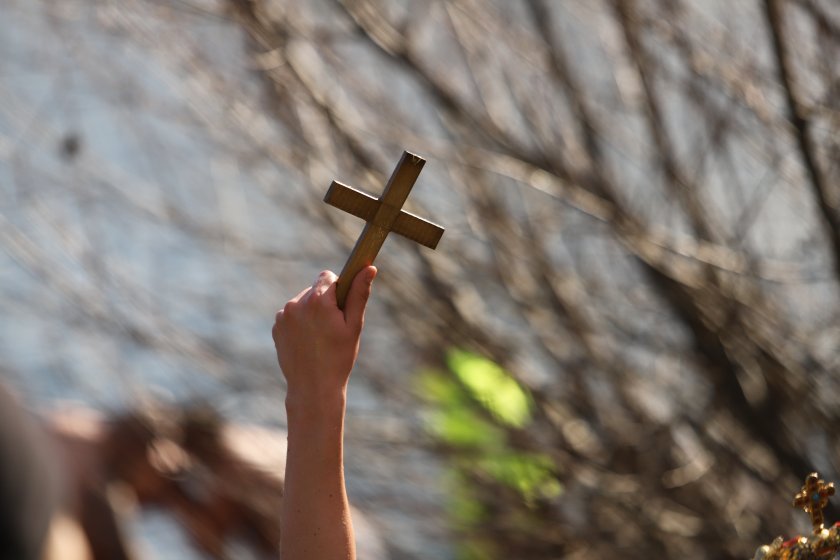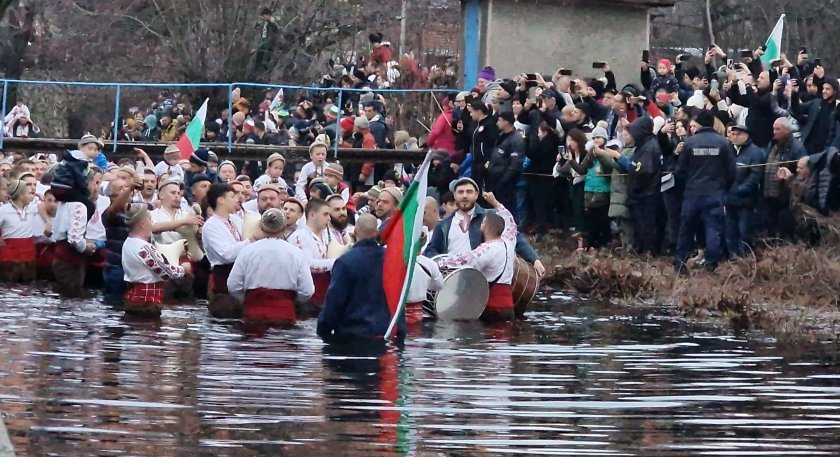Bulgaria celebrates Epiphany (St Jordan’s Day)

On 6th of January every year, the Bulgarian Orthodox church marks St. Jordan’s Day (Epiphany). It falls on the twelfth day after Christmas and marks the day Jesus was baptised in the Jordan River by John the Baptist.
As the story goes, during the baptising ritual, the sky opened and the Holy Spirit appeared in the form of a dove and named Jesus the son of God. Because of this event, the holiday has been called Epiphany.
The feast has different names in the different regions of the country: Bogoyavlenie ("Manifestation of God“), Krashtenie Gospodne ("Baptism of the Lord“) or Yordanovden ("Day of Jordan“, referring to the river).
The main ritual on this day is performed early in the morning by a priest who throws a wooden cross into the river, sea or lake. Men dive in the ice-cold water and race to retrieve the cross. It is believed that the man who first takes the cross out of the water will be blessed to be healthy and freed from evil spirits throughout the year. The priest delivers a special blessing to that man and his household.
The ritual is followed by a festive liturgy. The Bulgarian Patriarch serves a Great Blessing of Waters Liturgy in St. Alexander Nevsky Cathedral in Sofia.
The ritual lasts longer In the South Bulgarian town of Kalofer. A large group of men and boys go in the icy waters of Tundzha river early in the morning and perform the unique men’s dance called “Mazhko horo”. In Kalofer it does not matter who catches the cross because as a tradition it goes to the youngest boy who went into the freezing waters of Tundzha river.

In Bulgaria, the holiday has a special place in the cultural tradition since many people are named Jordan and celebrate their name day.
As part of the tradition, water blessing of the Bulgarian military flags and the flags and banners of the sacred places of the Bulgarian Army takes place in front of the Monument of the Unknown Soldier in the capital city of Sofia.
The tradition of consecrating the Bulgarian military units and colours is approximately 1,000 years old. The first solemn consecration of that kind was committed in the year 917 by the Bulgaria Tzar Simeon the Great, on the day before the battle of Aheloy, when Bulgarian troops of Tsar Simeon the Great defeated the army of the Byzantine Empire.
Get the latest news wherever you are!
Follow us on
Facebook
and
Instagram
Follow BNT’s YouTube channel
You can now also watch us on
TikTok
Find us on
Google News























